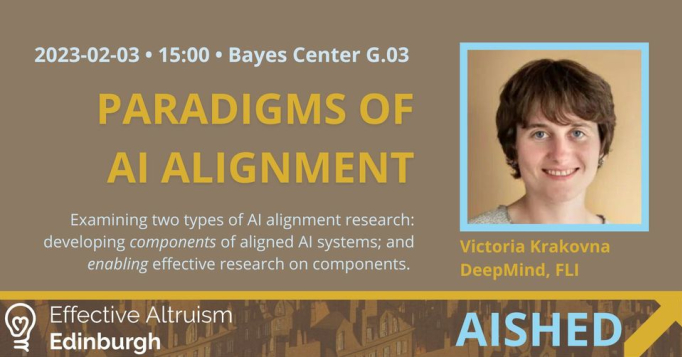Examining two types of AI alignment research: developing components of aligned AI systems; and enabling effective research on components.
Join us for a talk by Victoria Krakovna about the paradigms of research in AI alignment.
Register for free at https://www.eventbrite.com/.../talk-paradigms-of-ai...
---
**Talk Abstract**
AI alignment research can be classified as either developing different components of an aligned AI system (e.g. outer and inner alignment) or enabling more effective and relevant research on the components (e.g. through improving interpretability or progress on foundational questions). This talk will discuss research directions in each of these areas.
**Speaker Bio**
Victoria Krakovna is a Senior Research Scientist at DeepMind working on AGI alignment, and is a co-founder and board member of the Future of Life Institute. Her current work focuses on how advanced AI systems could acquire goals, and how to ensure those goals are human-compatible.

